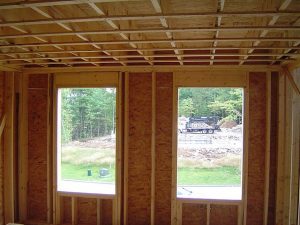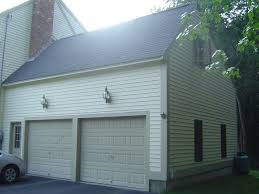Tips for Making Sure You get the Right Loan for Your Home Remodeling Project
By Mark J. Donovan
|
|
It wasn’t so long ago that getting a loan from a bank for a home addition, kitchen/ bathroom remodel or some other type of major home improvement project was a challenging endeavor.
You went to a few banks to apply for a loan and you were never sure what type of response you were going to get. Today, however, things have changed. Banks offer a plethora of options when it comes to home addition financing. |
So many options in fact, that it’s challenging to wade through all of them and figure out what’s best for your personal situation.
There are a few things that you can do and should understand to help make the decision process for financing your home addition or remodeling project easier and safer for you. I summarize those things below.
|
Know How Much Your Home Addition Project will Cost before Asking for a Loan First, make sure to have accurate home addition cost estimate, regardless if you are using a general contractor or not. Banks will want to see an accurate cost estimate of your home improvement project before they will lend you any money. |
 |
So if you have selected a contractor and have their bid, provide a copy of the bid to the bank(s) to enable them to properly consider your loan request. Also, make sure to ask for a loan that is 10% greater than the bid for contingencies.
Also, pick a loan solution that minimizes interest payments, e.g. take a shorter duration loan period whenever possible.
Focus on Lending Institutions that Meet Your Loan Needs
Don’t allow yourself to get dazzled and enamored with fancy loan features and options, and offerings of higher amounts of financing then you really need for your home addition or remodeling project. Keep it Simple Stupid (KISS) is the way to normally go.
| Your Credit Score Matters
If you have an A grade credit score then you will have less of a problem obtaining your home addition financing. An A grade credit score means you haven’t had any late payments for the past 12 months, and you don’t have your credit cards always max’d out over the same time interval. |
 |
If your credit score is less than A grade, you can probably still get financing for your home addition or remodeling project. However, you may not receive as much financing or have to pay a higher interest rate for it.
Loan-to-Value Ratio Determines Maximum amount of Financing Available
This is a key metric for banks offering home remodeling/construction loans. The loan-to-value ratio ultimately dictates how much of a loan a bank is willing to give you. The usual rule of thumb is an 80% limit on the amount of a loan to the value of the home. So for example, if you have a home valued at $250K, the maximum loan that a bank would be willing to offer you is $200K, and this assumes you have an A grade credit score and no other loan on the home.
If, however, you do have a loan already on the home, e.g. $125K, then the maximum amount of money a bank would be willing to lend for a home addition / home remodeling project would be $200K – $125K, or $75K. And again, this is with an A grade credit score. The maximum loan value would be less if you have a B grade credit score or high debt.
|
Your Monthly Income Level Matters The amount of money you bring in every month in income will also help to determine how much financing you can obtain on a home addition or remodeling project. However, if your monthly income is all tied up in debt, then don’t expect to receive much of a loan, if any. |
|
As a general set of guidelines, banks like to see that your total monthly expenses/debt does not exceed 35% of your gross monthly income, and that your house payment is no more than 28 % of you’re your gross monthly income. Banks will elevate these thresholds a bit to around 40% of total monthly expenses for a second mortgage, but not much more.
|
Interest Rates Impact Home Addition Finance Amounts The higher the interest rates, the less purchasing power you will have, and thus the lower the loan amount you will be able to receive. So when interest rates are low it is usually the best time for doing those home addition or home remodeling projects. You can often buy down the interest rates by paying points. Each point paid upfront as part of the loan closing reduces the interest rate by 1 percent of the loan. |
|
So if you have some extra cash in the bank and interest rates are high, consider paying the extra 1 or 2 points to get a lower interest rate loan.
Loan Timeframe for Home Addition Financing
The shorter the timeframe on the loan the least amount of interest you’ll pay on the life of the loan. However, with shorter loan timeframes come higher monthly payments. So again, do what is right for your particular set of finances and income level.
Hopefully with these bits of advice and loan facet descriptions you can now make a more intelligent decision on what’s the right way to finance your home addition project.
Related Information on Home Addition Financing and Costs
- Average Home Addition Costs
- Adding a Room over the Garage
- Custom Home Construction Costs
- How Much Does a 20×20 Room Addition Cost
For more help on building a home addition, see HomeAdditionPlus.com’s Home Addition Bid Sheets. Our Home Addition Bid Sheets provide you with the knowledge and information on how to plan a home building project, and what to look for when hiring contractors. They also include detailed cost breakdown tables and spreadsheets for estimating your own new home construction building costs.
Free Home Addition Price Quotes with No Obligation!
Fill out our 3-5 minute quick and easy form, and receive a free price quote on a house addition from one of our prescreened and licensed home addition contractors. This process is free and there is no obligation to continue once you receive your house addition price estimate.


